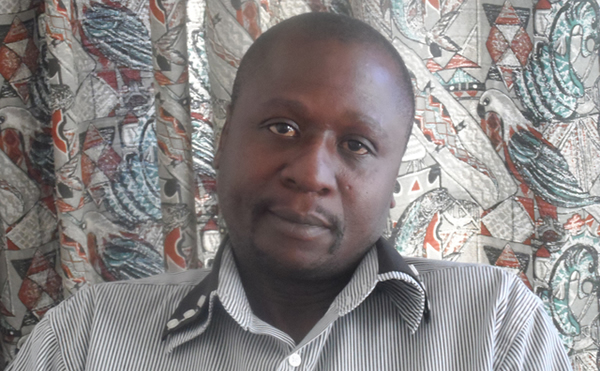New NGO unveils anti-graft project as govt admits rampant public sector corruption
By Tatenda Dewa | Harare Bureau |
Information for Development Trust (IDT), a new non-governmental organisation (NGO), on Friday unveiled an investigative reporting project to expose public sector corruption that government recently admitted was rife in Zimbabwe.

Vice President Emmerson Mnangagwa admitted during a seminar on graft in Harare last week that top ranking government officials were sustaining lavish lifestyles through the abuse of their offices.
Zimbabwe is ranked among the most corrupt countries in the world, and estimates indicate that billions of dollars have been lost in recent years through both public and private sector graft.
President Robert Mugabe in March revealed that diamonds worth some 13 billion dollars had leaked from the Marange diamonds mines between 2009 and 2015, while the Auditor General has repeatedly bemoaned failure by government departments to heed her recommendations.
The IDT investigative reporting launch at a local hotel in the capital was attended by members of parliament, editors, journalists and civil society representatives.
Paurina Mpariwa, a lawmaker who heads the parliamentary portfolio committee on Public Accounts, hailed the advent of the IDT project as a timely intervention that would help arrest official corruption.
“PAC (Public Accounts Committee) plays an oversight role on public governance and we are heartened by the fact that we will have on board an institution like IDT that will help give scrutiny on corruption,” Mpariwa told delegates in her solidarity message.
She added: “We are availing ourselves to IDT, so feel free to approach us any time.”
IDT was locally registered in late 2015 and started operating in July this year and promotes access to information on public and private sector governance using media-based initiatives and research so as to enhance transparency, accountability and integrity.
“What makes our investigative journalism unique is that, far from being happy with just producing well-researched content, we will share and subject it to intense public debate from which recommendations will be made to relevant policymakers and bureaucrats.
“After that, we are going to monitor departments around which our research would have made to see if there is transformative change. There will be follow-up investigative reports on progress being made by those departments,” said Reyhana Masters, the IDT board chairperson.
Delegates agreed that investigative journalism faced numerous constraints in Zimbabwe.
Dumisani Muleya, the ward-winning editor at the Zimbabwe Independent, said local journalists lacked skills and resources to undertake serious investigative reporting.
“Outside modest attempts in the past and presently, investigative journalism is going through a hard time in Zimbabwe, mostly due to the prevailing economic crisis that we are burdened with.
“Newsrooms are understaffed, there is no money to fund serious IJ (Investigative Journalism), reporters are poorly remunerated, and the result is that there is poverty of in-depth, objective and well-researched journalism. As a result, corruption and bad governance have been let off the hook,” said Muleya.
Another lawmaker, Kindness Paradza, who sits in the parliamentary portfolio committee on the media and is a retired journalist, challenged IDT and other journalists to take advantage of modern information technology to expose corruption.
He added: “We hope that IDT’s investigative reporting programme will help resuscitate reliable, factual and in-depth journalism.”
In addition to Masters, the other IDT board members are Cris Chinaka, a veteran journalist and international media trainer, Precious Chakasikwa (vice chairperson), a human rights lawyer who sits on several other non-profit boards and is an advocate working with Kantor and Immerman, Foster Dongozi, the Zimbabwe Union of Journalists (ZUJ) secretary general, and Israel Mabhande, an accountant.
Tawanda Majoni, a journalist, academic, newspaper columnist and media mentor, is the IDT national coordinator.






